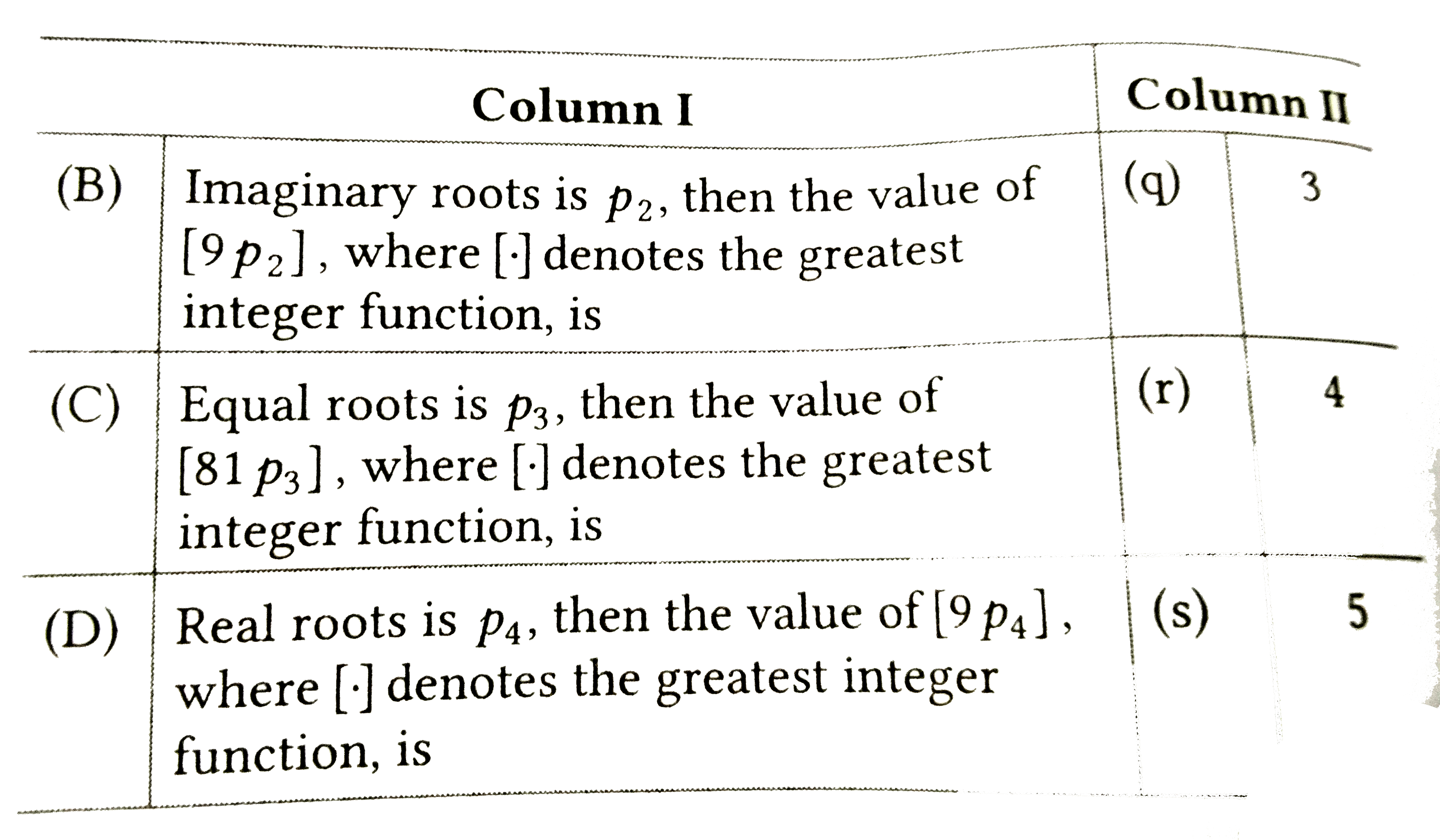A pair of numbers is picked up randomly (without replacement) from the set {1,2,3,5,7,11,12,13,17,19}. The probability that the number 11 was picked given that the sum of the numbers was even is nearly 0.1 b. 0.125 c. 0.24 d. 0.18
The correct Answer is:C
Let A be the evetn that 11 is picked and B be the event that sum is even. The number of ways of selecting 11 along with one more odd number is n (A∩B)=7C1.
The number of ways of selecting either two even numbers or selecting two odd numbers is n(B)=1+8C2.
P(A/B)=P(A∩B)P(B)=729=0.24
Topper's Solved these Questions
- PROBABILITY IIBOOK - CENGAGE ENGLISHCHAPTER - PROBABILITY IIEXERCISE - MULTIPLE CHOICE ANSWER TYPE
17 Videos
- PROBABILITY IIBOOK - CENGAGE ENGLISHCHAPTER - PROBABILITY IIEXERCISE - LINKED COMPREHENSION TYPE
43 Videos
- PROBABILITY IIBOOK - CENGAGE ENGLISHCHAPTER - PROBABILITY IIEXERCISE - CONCEPT APPCICATION EXERCISE 14.6
5 Videos
- PROBABILITY I BOOK - CENGAGE ENGLISHCHAPTER - PROBABILITY I EXERCISE - JEE Advanced
7 Videos
- PROGRESSION AND SERIESBOOK - CENGAGE ENGLISHCHAPTER - PROGRESSION AND SERIESEXERCISE - ARCHIVES (MATRIX MATCH TYPE )
1 Videos
Similar Questions
Three numbers are randomly selected from the set {10, 11, 12, ………, 100}. Probability that they form a Geometric progression with integral common ratio greater than 1 is :
View SolutionThree numbers are randomly selected from the set {10, 11, 12, ………, 100}. Probability that they form a Geometric progression with integral common ratio greater than 1 is :
View Solution
Knowledge Check
What is the probability that the sum of two different numbers randomly picked (without replacement) from the set S={1,2,3,4} is 5 ?
A1/5B3/16C1/4D1/3If x represents a number picked at random from the set {−3,−2,−1,0,1,2}, what is the probability that x will satisfy the inequality 4−3x<6?
A16B13C12D23
Two numbers b and c are chosen at random with replacement from the numbers 1, 2, 3, 4, 5, 6, 7, 8 and 9. Find the probability that x2+bx+c>0 for all x∈R.
View SolutionTwo integers are selected at random from the set {1, 2, …, 11}. Given that the sum of selected numbers is even, the conditional probability that both the numbers are even is
View SolutionA number is selected at random from the numbers 1 to 30. The probability that it is a prime number is (a)23 (b) 16 (c) 13 (d) 1130
View SolutionTwo numbers are selected randomly from the set S={1,2,3,4,5,6} without replacement one by one. The probability that minimum of the two numbers is less than 4 is (a) 115 (b) 1415 (c) 15 (d) 45
View SolutionTwo numbers are selected randomly from the set S={1,2,3,4,5,6} without replacement one by one. The probability that minimum of the two numbers is less than 4 is (a) 115 (b) 1415 (c) 15 (d) 45
View SolutionTwo numbers a and b are chosen at random from the set {1,2,3,4,...,0} with replacement. The probability that the equation x2+√2(a−b)x+b=0 has


View Solution
